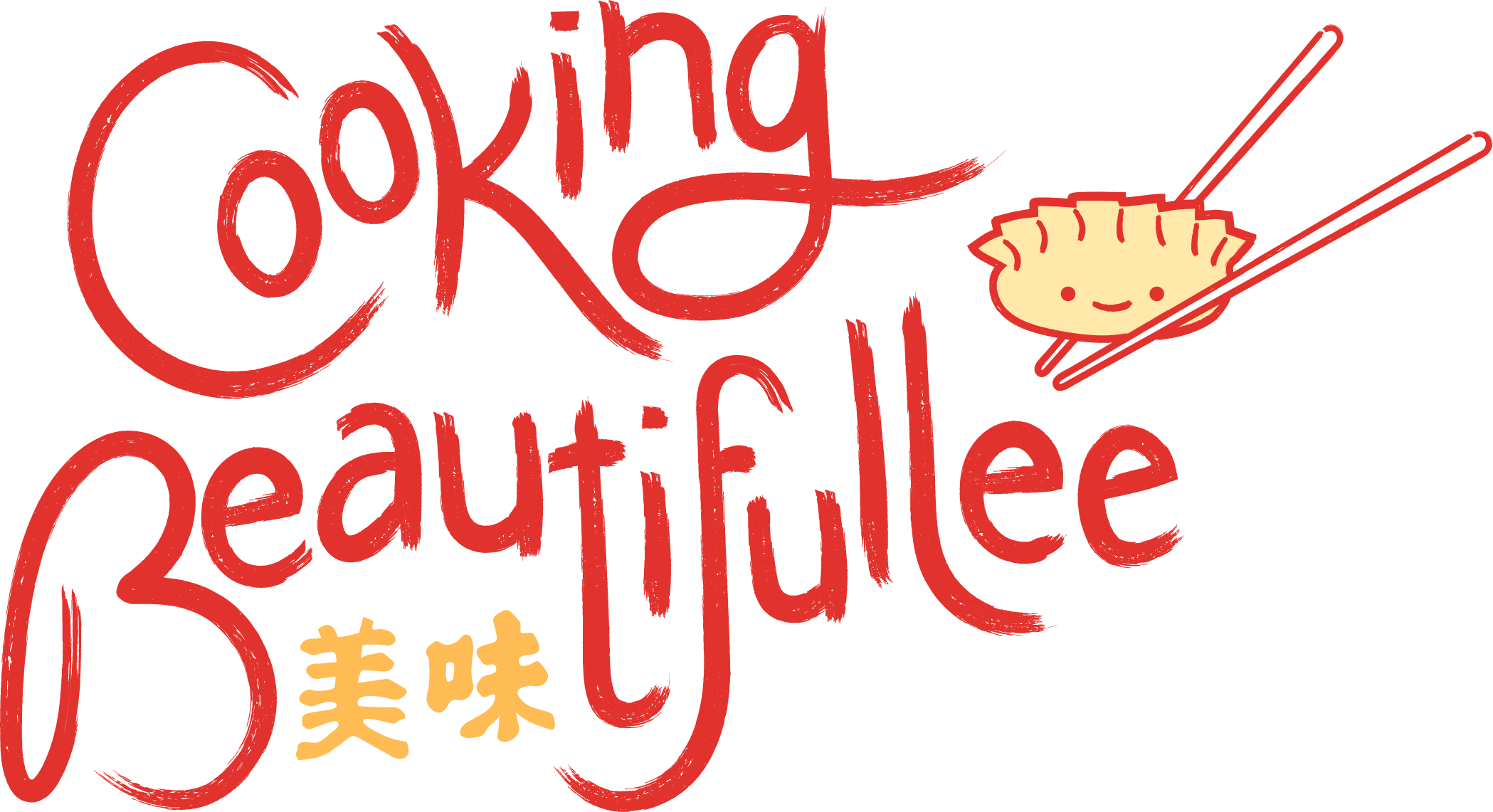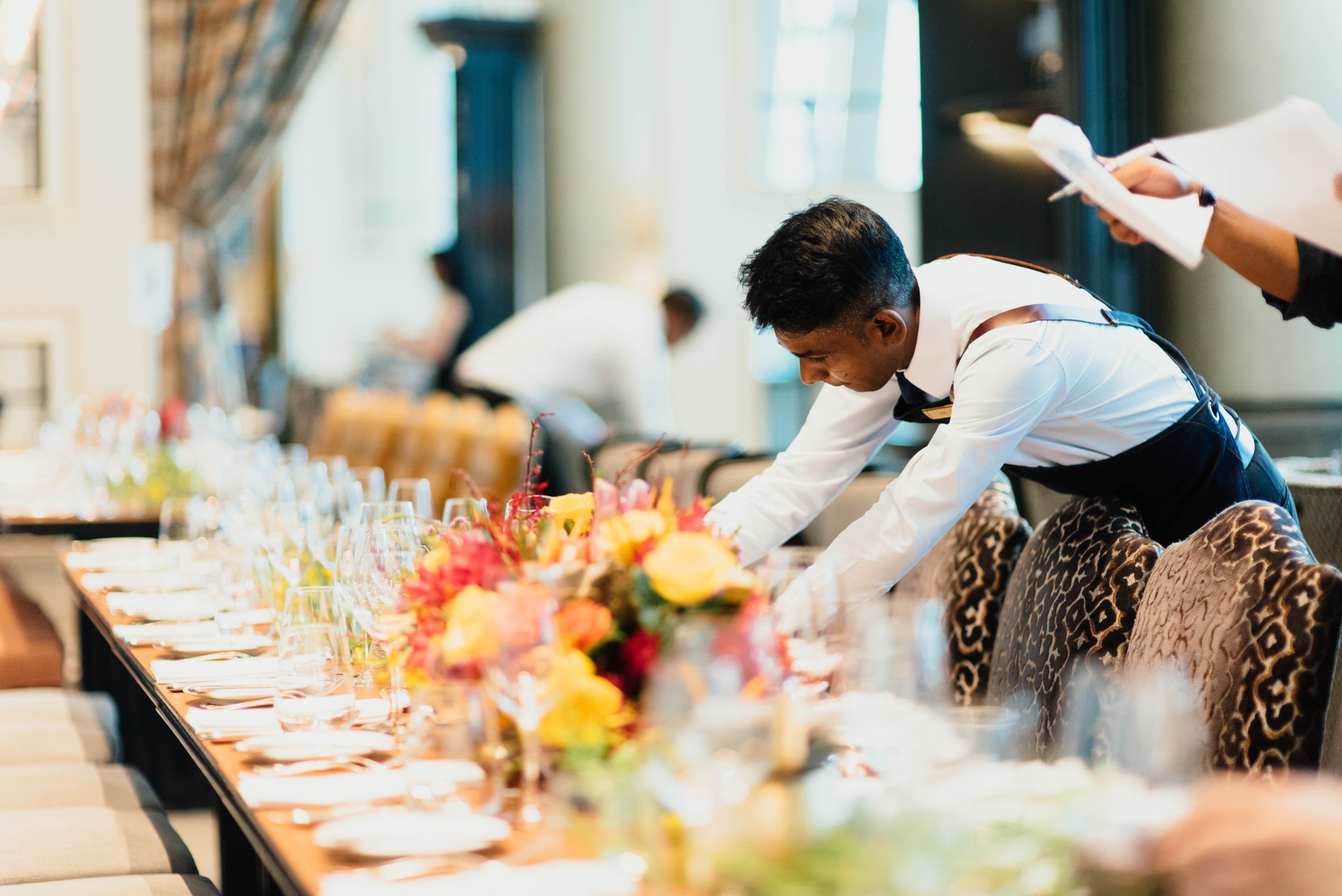Race and Hospitality
Since more people choose to vote with their wallets, Aspiration has created a checking account app that pulls data on the environmental and ethical practices of more than 5,000 companies, including Starbucks, Whole Foods and Burger King. The clients can check out the Aspiration Impact Measurement (AIM) of those companies. Andrei Cherny, the founder of Aspiration says, "this helps people think more deeply about the ethics and values of places where they're doing business."
Eight years ago, I worked for Liberty Times, the most popular newspaper in Taiwan, as a travel journalist. My Column was about food and travel. I have to say, before 2017, food writing was relaxing, airy, and an area outside politics. Writing about food was like an excursion. I hardly discussed any food related topics from a political point of view. Nowadays, a food writer cannot only focus on the food itself or the story of a legendary chef.
For example, this year, 60 percent of chefs nominated for the James Beard Award were female. Some media outlets, such as Eaters, have guidelines that their editors do not write reviews for any restaurants that was associated with sexual harassment. It is intriguing that nowadays, when we evaluate a restaurant, we pay attention to not only the food, but also its policy. Do they hire female chefs or chefs of color? How do they treat their employees? Do they support a sustainable food system? Food journalists are encouraged to understand a restaurant business in the depths so much deeper than we did before 2017.
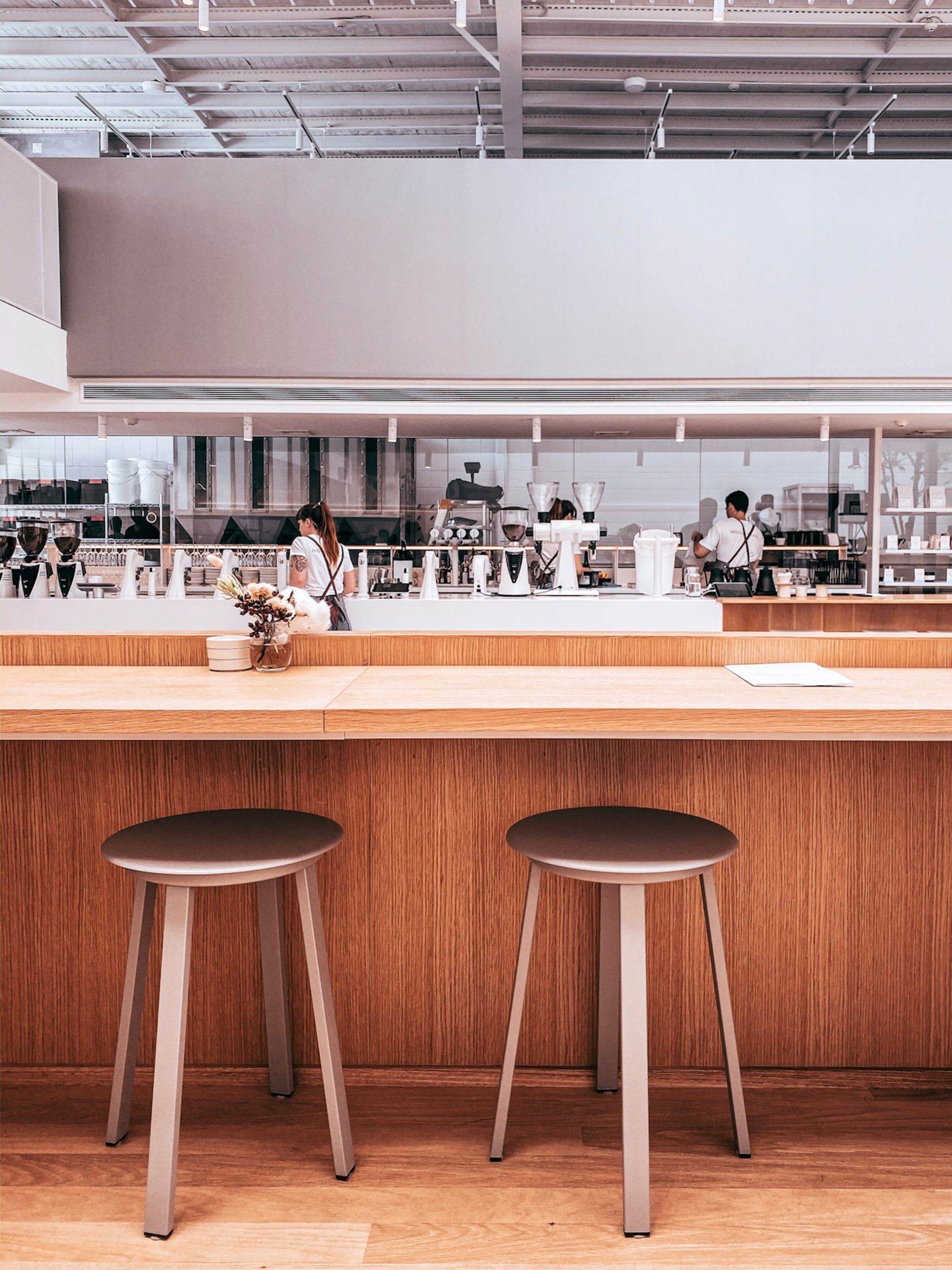
Being a chef instructor, I actually like the fact that food and our industry are taken more seriously now. One of the most memorable quotes attributed to Howard Schultz, Founder and CEO of Starbucks, "We are not in the coffee business serving people, but in the people business serving coffee." I agree with Howard. It's not about food. It's about building up a positive business culture and giving back to the community.
Unfortunately, Howard's points may not have been well received by all of the employees of Starbucks. As many of you likely heard and read about recently, two African Americans were arrested at Starbucks while waiting for their friends on April 12th. Essentially, they were arrested because they used the restroom and did not order a drink while they were waiting for their friends. I think many of us may have done the same thing but would never get arrested because of it. One time, my child needed to use the restroom when we were at the Public Garden. I went to Four Season Hotel and used the restroom. The doorman welcomed me, even though I didn't spend a single dime there.
When I was reading an editorial of The Washington Post, I was shocked to learn that "In Washington, businesses in Georgetown operated a private messaging app that allowed retailers to alert police officers about people they considered suspicious. The vast majority of suspicions in the wealthy, predominantly white community were about black people, some of whom were described in offensive language. The service was suspended in 2015 after concerns arose about racial profiling." This raises many questions. How do we judge who are the patrons or who are the trespassers? Who should have the right to make the judgment? What standard should be applied? Household income? Education background? Or color of skin?
Before I worked in the food industry, most of my friends were Asian, Asian Americans, Jewish Americans and Caucasian Americans. I did not choose to be friends with people of those races, it was just what happened. When I was in college in London, there were no black classmates. After I moved to United States, I lived in Chestnut Hill and Weston. All my neighbors were again all Asian, Jewish or Caucasians. I still remembered the first day that I worked at Farmstead Table. I was in the changing room picking up my chef's coat. I saw a very interesting name, and I ran to my boss's office. "Sharon! Sharon! We have a chef here named Jesus?" "Melissa, the pronunciation is "hay-SOOS", not "GEE-sus". I cracked everyone up that first morning at work.
In the food business, you have opportunity to work with colleagues from all different cultural backgrounds. David Chang once said that he likes the food business because it is honest. In the end of the day, it is about if you can bust your ass off and get the work done. I have to say, we all have to be very thankful for many hard working employees of color in the food industry, and I have been able to enjoy working with many of them. I am, at some point, like David Chang, deeply moved by the honesty of food industry.
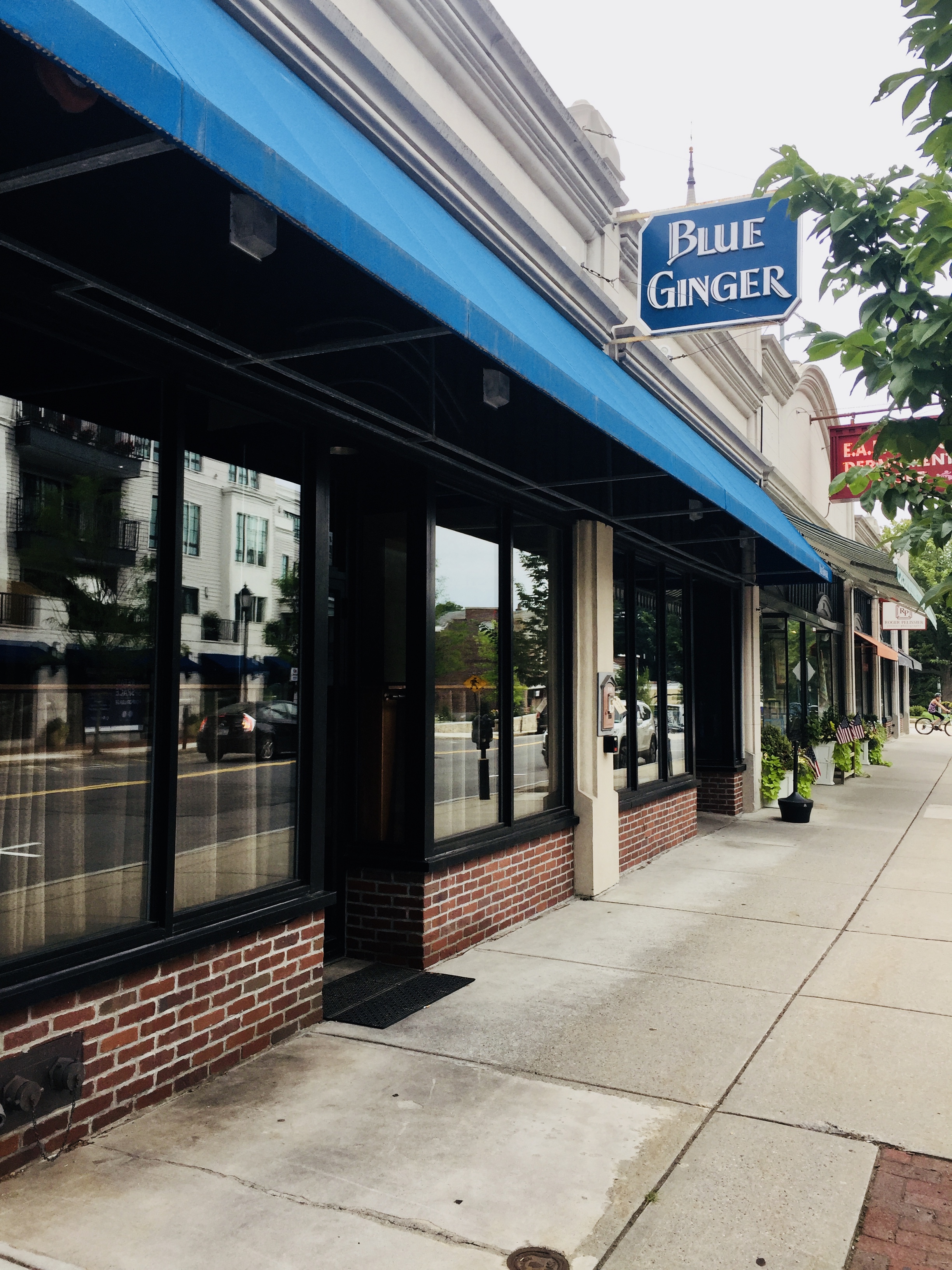
When I worked at Blue Ginger, I remember Chef Ming told us, "Guests may go back to a restaurant even though the food is bad, but they never go back if the service is bad." We were taught to treat each guest with polished manner and genuine respect. One day, an African American came to the lounge at Blue Ginger. Blue Ginger is located in Wellesley. We hardly see guests of color there. The man sat down and told me he used to be the dish-washer at Blue Ginger. He ordered a fried calamari and a glass of craft beer. At that time, JT (Jon Tayler) was the executive chef there. I informed him that a former dish-washer was there for a snack and what discount we should apply to his bill. "His bill is on me," said JT. So, I went to the guest and told him he doesn't have to pay. I remember the total amount for calamari and beer was about twenty dollars. And he left twenty dollars as tip for the server. His tip is one hundred percent of his bill.
Even though Blue Ginger is no longer there. I still think that is one of the restaurant where truly represents hospitality. If you ask me what hospitality means, I would tell you, "treat every guest with the same respect and warmth." It is that simple.
Recommended reading: Starbucks arrests: Who gets to decide whether you're a patron or a trespasser
Join Our Community at Patreon
Perks for Friends of Food Patrons only:
Friends of Food is a digital members-only community designed to empower and connect food folks alike.
- Invitation to private community & food folk directory
- Access to a highly vetted network of Chefs
- One hour Zoom cooking lesson once a month
- Cookbook club + happy hour once a month
- 30 mins cooking consultation
- E-mail us your cooking questions and we will get back to you with our best answer within a week.
- Shoutout
- Polls (Help us choose a topic for an upcoming video + more!)
- Behind-the-scenes / Bloopers
- Exclusive perks from brand partners
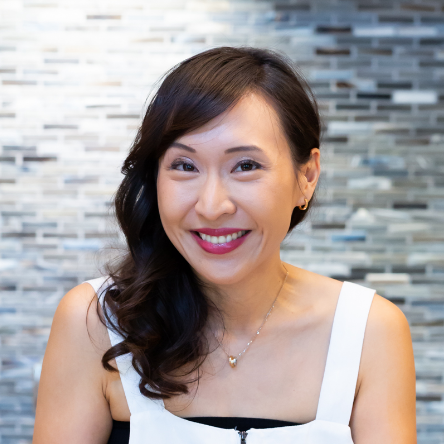
Melissa Lee
Chief Entertainment Officer
Melissa Lee: CEO (Chief Entertainment Officer) Melissa is 100% MIT (Made in Taiwan), where she worked as a food writer. She’s also worked alongside renowned chefs like Ming Tsai and Joanne Chang, honing her craft and gathering stories along the way. Part story-teller, part educator, and part food lover, Melissa brings a special blend of experience, skill, and enthusiasm to her work. She blends her Asian background, her new home of New England, and love of food and culture to bring joy, optimism, and inspiration to food lovers and fun-seekers everywhere.
What sparked your passion for the industry?
The desire to make things by hand. The joy of sharing delicious, hearty food with students. The opportunity for people to get connected via cooking and baking. When a child smiled broadly and told me it’s the best scone he has ever made and eaten, it really made my day!
In your opinion, what’s the most important course?
Well, I usually take a peek at the wine list first. I like tapas style, so the course doesn’t really matter. Cheese and charcuterie are always a good place to start. And since I’m a pastry chef, there is always room for dessert!
Bill Gates is picking up your tab, where would you go?
Noma, Copenhagen.
